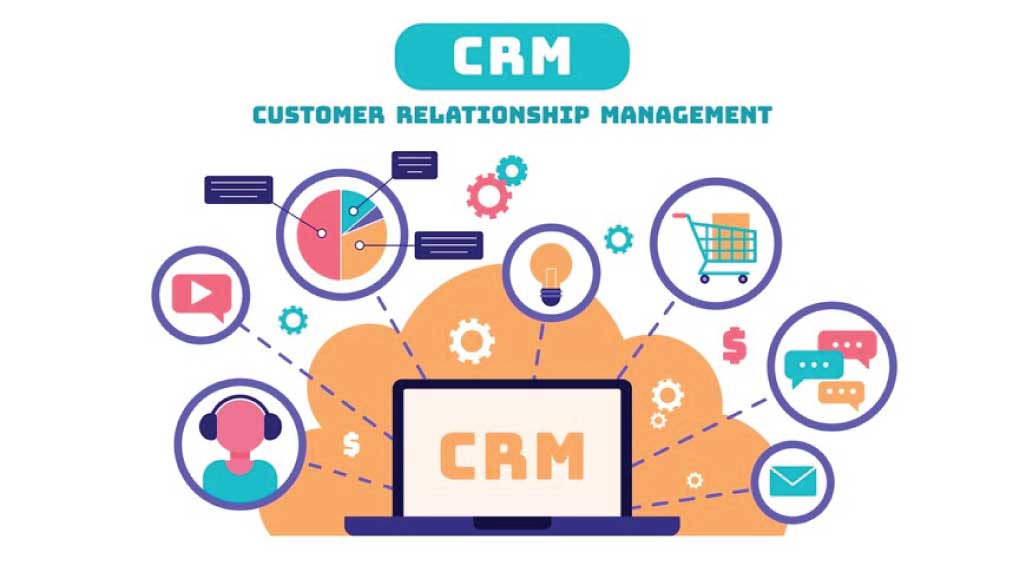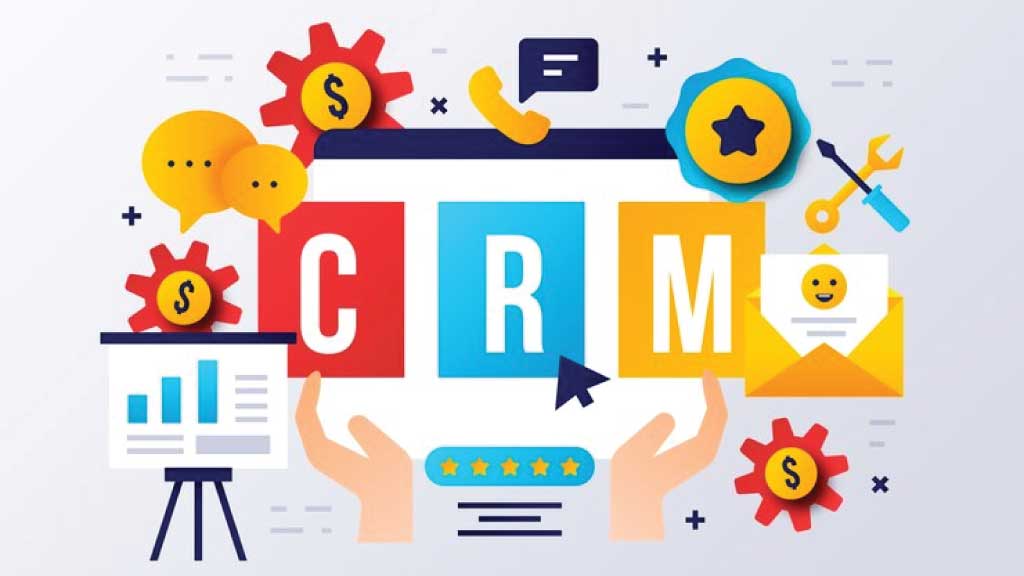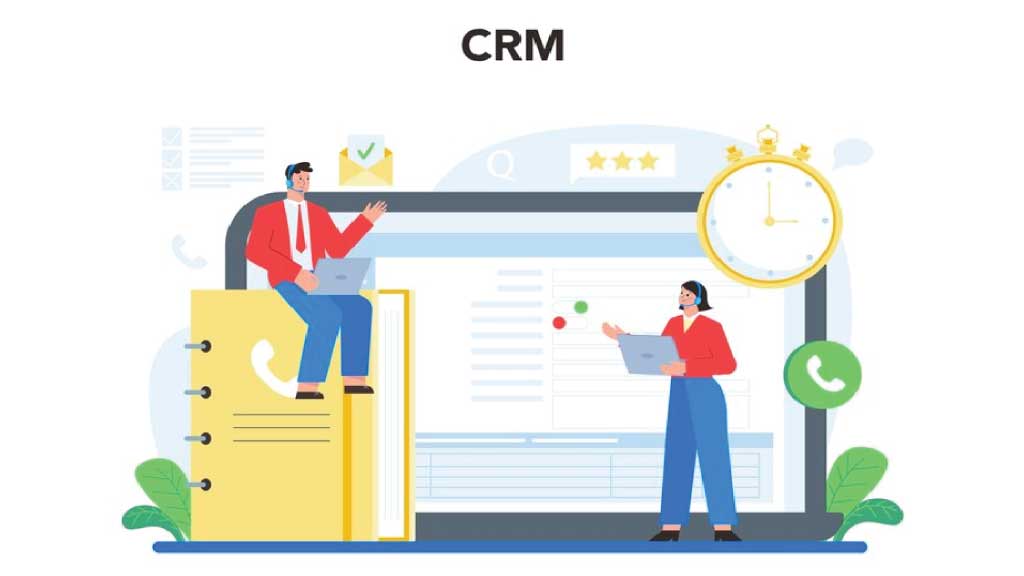In today’s fiercely competitive business landscape, maintaining strong and meaningful relationships with customers is paramount to success. As businesses strive to differentiate themselves and stay ahead of the curve, one tool emerges as a secret weapon: Customer Relationship Management (CRM).
This powerful approach encompasses a suite of strategies, technologies, and practices designed to centralize customer data, personalize interactions, and foster long term loyalty. From tracking customer engagements across multiple touchpoints to providing stellar customer service and gathering actionable feedback, CRM empowers businesses to truly understand and connect with their audience on a deeper level.
In this blog post, we delve into the multifaceted realm of CRM, exploring its pivotal role in driving business growth, enhancing customer satisfaction, and ultimately unlocking the full potential of every customer relationship. Join us as we uncover the secrets behind successful CRM implementation and how it can propel your business to new heights.
Customer Relationship Management Definition
Customer Relationship Management (CRM) is a business strategy and set of practices aimed at managing and nurturing relationships with customers throughout their lifecycle. It involves the systematic collection, organization, and analysis of customer data to better understand their needs, preferences, and behaviors.
The primary goal of CRM is to enhance customer satisfaction, loyalty, and retention by delivering personalized experiences, optimizing interactions across various touchpoints, and providing timely and relevant support and services.
CRM encompasses a range of activities, including sales management, marketing automation, customer service, and data analytics, all aimed at building stronger, more profitable relationships with customers.
What Is Customer Relationship Management (CRM)?

Customer Relationship Management (CRM) refers to the strategies, practices, and technologies that businesses employ to manage and analyze interactions with their customers and potential customers. The primary goal of CRM is to improve business relationships with customers, ultimately driving sales growth and enhancing customer retention.
CRM involves various aspects, including:
Data Management:
Effective data management is crucial for any CRM system. It involves not only collecting but also storing and organizing customer information in a structured manner. By maintaining comprehensive records of contact details, purchase history, preferences, and interactions across various channels, businesses can create a holistic view of each customer. This centralized database enables seamless access to customer data, facilitating personalized interactions and targeted marketing efforts.
Customer Interaction:
CRM systems facilitate communication with customers through multiple channels, including email, phone calls, social media, and live chat. This allows businesses to engage with customers consistently across their preferred channels, fostering stronger relationships and enhancing customer satisfaction. By providing personalized responses and timely support, businesses can build trust and loyalty with their customers, ultimately driving repeat business and referrals.
Automation:
CRM automation plays a vital role in streamlining processes and improving efficiency. By automating repetitive tasks such as sending emails, scheduling appointments, and updating customer records, businesses can save time and resources while ensuring consistency and accuracy. This allows employees to focus on more value added activities, such as nurturing leads, resolving complex issues, and building relationships with customers.
Analytics:
Analytics is a powerful tool for extracting insights from customer data and driving informed decision-making. By analyzing customer behaviors, preferences, and trends, businesses can identify patterns, anticipate needs, and tailor their marketing strategies accordingly.
CRM analytics also enable businesses to measure the effectiveness of their customer engagement efforts, track key performance indicators, and identify areas for improvement. Ultimately, leveraging analytics allows businesses to optimize their CRM processes, enhance customer satisfaction, and drive business growth.
Marketing:
CRM data plays a pivotal role in crafting effective marketing campaigns tailored to meet the needs and preferences of customers. By leveraging CRM data, businesses can segment customers based on demographics, purchase history, or behavior, allowing for targeted messaging and personalized offers. This targeted approach not only increases the relevance of marketing efforts but also enhances engagement and conversion rates.
Additionally, CRM systems enable businesses to track the effectiveness of their marketing campaigns, measuring key metrics such as conversion rates, click through rates, and return on investment. By analyzing this data, businesses can refine their marketing strategies, allocate resources more effectively, and achieve better results.
Sales Management:
Effective sales management is essential for maximizing revenue and driving business growth. CRM systems provide tools and features to manage the sales pipeline, track leads, and monitor the progress of deals. Lead scoring capabilities help prioritize leads based on their likelihood to convert, while forecasting tools provide insights into future sales performance. Additionally, CRM systems enable sales teams to analyze performance metrics, identify bottlenecks, and optimize sales processes for improved efficiency and effectiveness.
Customer Service:
Providing exceptional customer service is a key differentiator for businesses looking to stand out in today’s competitive landscape. CRM platforms streamline customer service operations by integrating helpdesk and ticketing systems, allowing businesses to efficiently manage customer inquiries, resolve issues, and address concerns.
By centralizing customer data and interaction history, CRM systems enable customer service representatives to provide personalized support and tailored solutions, enhancing the overall customer experience. Moreover, CRM analytics provide insights into customer satisfaction levels, service response times, and resolution rates, enabling businesses to continuously improve their customer service processes and exceed customer expectations.
Overall, CRM fosters stronger customer relationships by enabling businesses to understand their customers better, deliver personalized experiences, and provide timely support. It serves as a central hub for managing all customer-related activities, driving customer satisfaction, loyalty, and ultimately, business growth.
What Is The Ultimate Goal Of Any Customer Relationship Management (crm) Process?

The ultimate goal of any Customer Relationship Management (CRM) process is to build and maintain strong, mutually beneficial relationships with customers. This encompasses various objectives, including:
Customer Satisfaction:
Ensuring customer satisfaction is at the core of any successful business strategy. By consistently delivering high-quality products, services, and positive interactions, businesses can foster a sense of trust and loyalty among their customers. CRM systems play a crucial role in monitoring and managing customer satisfaction by collecting feedback, tracking customer interactions, and resolving issues promptly.
By analyzing customer feedback and sentiment data, businesses can identify areas for improvement and implement changes to enhance the overall customer experience. Furthermore, CRM platforms enable businesses to personalize interactions and tailor offerings to meet the unique needs and preferences of individual customers, further contributing to increased satisfaction and loyalty.
Customer Retention:
Retaining existing customers is more cost-effective than acquiring new ones and is essential for long-term business success. CRM systems help businesses keep existing customers engaged and loyal by maintaining detailed customer profiles, tracking purchase history, and proactively reaching out to address their needs. By leveraging CRM data, businesses can segment customers based on their value, behavior, or preferences and implement targeted retention strategies, such as loyalty programs, exclusive offers, or personalized communication.
Additionally, CRM analytics provide insights into customer churn patterns, enabling businesses to identify at-risk customers and take proactive measures to prevent attrition, ultimately maximizing customer lifetime value and revenue.
Customer Acquisition:
Acquiring new customers is vital for business growth and expansion. CRM data provides valuable insights into customer demographics, preferences, and behaviors, allowing businesses to target the right audience with personalized marketing efforts. By leveraging CRM data, businesses can create highly targeted marketing campaigns, optimize advertising spend, and improve conversion rates.
CRM systems also facilitate lead management and nurturing, allowing businesses to track leads through the sales pipeline and provide timely follow-up to convert prospects into customers. By continuously analyzing and refining customer acquisition strategies based on CRM data, businesses can attract new customers more effectively and drive sustainable growth.
Revenue Growth:
Increasing sales and profitability is a primary objective for businesses of all sizes. CRM systems help drive revenue growth by enabling businesses to understand customer needs, preferences, and behaviors and align products and services accordingly. By analyzing CRM data, businesses can identify cross-selling and upselling opportunities, optimize pricing strategies, and forecast sales trends.
CRM systems also streamline sales processes, improve sales team productivity, and shorten sales cycles, resulting in increased efficiency and faster revenue generation. Additionally, CRM analytics provide insights into customer lifetime value, enabling businesses to focus their resources on high-value customers and maximize revenue potential.
Efficiency and Effectiveness:
Streamlining processes and improving efficiency is essential for optimizing business operations and maximizing profitability. CRM systems automate routine tasks, reduce manual effort, and improve the overall efficiency of sales, marketing, and customer service operations. By automating tasks such as data entry, lead scoring, email marketing, and customer support, businesses can free up time for employees to focus on more value-added activities, such as building relationships and driving revenue.
CRM systems also provide real time visibility into key metrics and performance indicators, allowing businesses to identify bottlenecks, track progress, and make data-driven decisions to improve effectiveness and achieve operational excellence.
Data Driven Decision Making:
Making informed decisions is critical for business success in today’s competitive landscape. CRM data and analytics provide valuable insights into customer behavior, preferences, and trends, empowering businesses to make data-driven decisions across all areas of the organization.
By analyzing CRM data, businesses can identify opportunities for growth, optimize marketing campaigns, and allocate resources effectively. CRM systems also facilitate collaboration and communication across teams, ensuring that decisions are based on accurate and up-to-date information. By leveraging CRM data for decision-making, businesses can drive innovation, improve performance, and achieve sustainable growth in the long term.
Ultimately, the overarching aim of CRM is to foster long term relationships with customers, based on trust, satisfaction, and value delivery, thereby driving sustainable business growth and success.
Customer Relationship Management For Small Business

Customer Relationship Management (CRM) for small businesses is vital for fostering strong connections with customers and driving business growth. Here are some key considerations and strategies for implementing CRM in a small business context:
Choose the Right CRM Software:
When selecting CRM software for your small business, prioritize platforms that cater to your specific needs and growth goals. Look for user-friendly interfaces that offer essential features like contact management, email integration, task tracking, and reporting capabilities. Ensure the CRM system is scalable to accommodate future growth, allowing your business to expand seamlessly without outgrowing the software.
Centralized Customer Data:
Centralizing customer data is essential for maintaining a comprehensive view of each customer and delivering personalized experiences. By gathering and storing all customer information in a centralized CRM database, including contact details, purchase history, preferences, and communication history, businesses can access critical information easily and provide tailored interactions across various touchpoints.
Segment Your Customer Base:
Segmenting your customer base allows for targeted marketing campaigns and personalized communication strategies. Divide customers into groups based on demographics, behavior, or purchase history to deliver relevant messaging and offerings that resonate with specific segments. By understanding the unique needs of each customer segment, businesses can increase engagement and drive conversions.
Automate Routine Tasks:
Leverage CRM automation features to streamline repetitive tasks and improve efficiency. Automate processes such as email follow-ups, appointment scheduling, and customer record updates to save time and reduce manual effort. By automating routine tasks, businesses can ensure consistency in customer interactions, allowing employees to focus on more value-added activities that contribute to business growth.
Provide Excellent Customer Service:
Exceptional customer service is key to building long lasting relationships with customers. Utilize CRM tools to track customer inquiries, manage support tickets, and monitor response times, ensuring a seamless and responsive customer experience. By promptly addressing inquiries, resolving issues, and providing helpful assistance, businesses can demonstrate their commitment to customer satisfaction and foster loyalty.
Implement Sales Pipeline Management:
Efficient sales pipeline management is essential for driving revenue growth. Utilize CRM features to manage the sales pipeline, track leads, and monitor deal progress. By prioritizing sales efforts, identifying potential bottlenecks, and optimizing the sales process, businesses can increase efficiency and effectiveness, ultimately closing more deals and driving business success.
Utilize Data Analytics:
Harness the power of CRM data analytics to gain valuable insights into customer behavior, preferences, and trends. Analyze this information to make informed, data driven decisions, refine marketing strategies, identify upsell and cross-sell opportunities, and improve overall business performance. By leveraging CRM data analytics, businesses can stay ahead of the competition and drive sustainable growth.
Continuously Improve and Adapt:
The business landscape is constantly evolving, and it’s essential to continuously review and refine CRM strategies to stay competitive. Regularly gather feedback, analyze performance metrics, and monitor market dynamics to identify areas for improvement and adaptation.
Stay flexible and responsive to evolving customer needs and preferences, ensuring that your CRM strategies remain relevant and effective in meeting business objectives. By embracing a culture of continuous improvement and adaptation, businesses can maintain relevance and competitiveness in the market.
By effectively implementing CRM strategies tailored to the needs of small businesses, you can cultivate lasting relationships with customers, drive sales growth, and achieve sustainable business success.
Customer Relationship Management Solutions

Customer Relationship Management (CRM) solutions are software platforms or systems designed to help businesses effectively manage their interactions and relationships with customers. These solutions typically offer a range of features and functionalities aimed at streamlining customer-related processes and improving overall business performance. Some common features found in CRM solutions include:
Contact Management:
Efficient contact management is vital for maintaining strong relationships with customers. Utilize CRM systems to centrally store and organize customer contact details, communication history, and other relevant information. By having a centralized repository of customer information, businesses can easily access and update customer records, ensuring accurate and up to date data for personalized interactions and effective communication.
Sales Automation:
Streamline sales processes and boost productivity with sales automation tools available in CRM systems. These tools facilitate managing the sales pipeline, tracking leads, and automating tasks such as lead scoring, opportunity management, and sales forecasting. By automating repetitive tasks, sales teams can focus on high-value activities such as building relationships and closing deals, ultimately driving sales growth and improving efficiency.
Marketing Automation:
Maximize the impact of marketing efforts with CRM marketing automation features. Create, execute, and track marketing campaigns across multiple channels while segmenting audiences based on demographics, behavior, or preferences. Analyze campaign performance metrics to optimize marketing strategies and improve ROI. By automating marketing processes, businesses can deliver targeted messages to the right audience at the right time, driving engagement and conversions.
Customer Service and Support:
Deliver exceptional customer service with helpdesk functionalities available in CRM systems. These features enable businesses to manage customer inquiries, support tickets, and service requests efficiently. Features like ticket routing, escalation, and resolution tracking ensure timely responses and effective resolution of customer issues. By providing responsive and personalized support, businesses can enhance customer satisfaction, loyalty, and retention.
Analytics and Reporting:
CRM systems offer robust tools for analyzing customer data, generating insightful reports, and gaining valuable insights into customer behavior, preferences, and trends. By leveraging these analytics capabilities, businesses can make informed decisions, refine marketing strategies, and enhance customer experiences. Detailed reports enable stakeholders to track key performance indicators, measure campaign effectiveness, and identify areas for improvement, ultimately driving business growth and success.
Integration Capabilities:
The ability of CRM systems to integrate with other business systems and tools is essential for streamlining processes and ensuring data consistency across the organization. Integrations with email clients, marketing platforms, and accounting software allow for seamless data exchange and workflow automation. This integration enhances efficiency, improves collaboration, and provides a unified view of customer interactions and transactions.
Mobile Accessibility:
With the increasing reliance on mobile devices, CRM systems offer mobile accessibility, enabling users to access CRM functionalities anytime, anywhere. Mobile apps provide on the go access to critical customer information, allowing users to manage interactions, update records, and stay connected with customers even while away from the office. This mobility enhances productivity, responsiveness, and agility, empowering teams to deliver exceptional customer service and support.
Customization and Scalability:
CRM solutions offer flexibility to customize the platform according to specific business needs and scale as the organization grows or evolves. Customization capabilities allow businesses to tailor the CRM system to align with unique processes, workflows, and preferences. Additionally, scalable CRM solutions accommodate changing business requirements, whether it’s adding new users, expanding functionalities, or integrating with additional systems. This flexibility and scalability future proof the CRM investment, ensuring it continues to meet the evolving needs of the business.
CRM solutions come in various forms, including cloud-based software-as-a-service (SaaS) platforms, on-premises software installations, and hybrid deployments. Businesses can choose the CRM solution that best fits their requirements, budget, and technological infrastructure to effectively manage and optimize their customer relationships.
Customer Relationship Management Technology

Customer Relationship Management (CRM) technology refers to the tools, systems, and software platforms used by businesses to manage and optimize interactions with customers. These technologies enable organizations to collect, organize, analyze, and leverage customer data to enhance relationships, improve customer satisfaction, and drive business growth.
Some key components of CRM technology include:
CRM Software:
CRM software serves as the backbone of customer relationship management, providing businesses with the tools and capabilities to effectively manage interactions and relationships with customers. Whether cloud-based or on-premises, these platforms offer a centralized database for storing critical customer information, including contact details, purchase history, preferences, and interactions. By consolidating customer data in one accessible location, CRM software enables businesses to gain valuable insights, personalize interactions, and improve overall customer satisfaction.
Contact Management Tools:
Contact management tools within CRM software allow businesses to efficiently organize and maintain comprehensive records of customer contacts. These tools enable businesses to track communication history, notes, and other relevant details, ensuring that customer information is accurate and up-to-date. By centralizing contact information, businesses can easily access customer data, streamline communication, and provide personalized experiences to enhance customer relationships.
Sales Automation Software:
Sales automation software is designed to streamline sales processes and optimize sales performance. These tools help businesses manage leads and opportunities, automate repetitive tasks, and track sales performance metrics. By automating manual processes such as lead scoring, opportunity management, and sales forecasting, sales automation software enables sales teams to focus on high-value activities, such as building relationships and closing deals, ultimately driving revenue growth and improving efficiency.
Marketing Automation Platforms:
Marketing automation platforms empower businesses to create, execute, and analyze marketing campaigns across multiple channels. These platforms provide features for segmenting audiences, personalizing communication, and tracking campaign performance metrics.
By automating marketing processes and targeting specific customer segments, marketing automation platforms help businesses increase engagement, generate leads, and drive conversions. Additionally, by analyzing campaign data and metrics, businesses can optimize marketing strategies, improve ROI, and achieve better results.
Customer Service and Support Solutions:
In the realm of customer service, businesses rely on various solutions to effectively manage inquiries and support requests. Helpdesk software and ticketing systems streamline communication and resolution processes, ensuring timely responses to customer queries.
Self service portals empower customers to find solutions independently, reducing the burden on support teams. These solutions collectively enhance customer satisfaction by providing efficient and accessible support channels while enabling businesses to track and manage service requests effectively.
Data Analytics and Reporting Tools:
CRM technology offers robust analytics and reporting capabilities to extract insights from customer data. Built-in tools allow businesses to analyze trends, behavior patterns, and performance metrics, aiding in informed decision-making. By generating detailed reports, businesses can identify areas for improvement, measure the effectiveness of strategies, and optimize operations to better serve customers and achieve organizational goals.
Integration APIs and Tools:
Integration APIs and tools facilitate seamless connectivity between CRM systems and other essential business applications. This integration enhances workflow efficiency by synchronizing data across platforms, such as email clients, ERP systems, marketing platforms, and e-commerce platforms. By integrating disparate systems, businesses can streamline processes, improve data accuracy, and provide a cohesive customer experience across all touchpoints.
Mobile Applications:
The availability of mobile applications in CRM technologies extends accessibility and convenience to users. Mobile apps enable users to access customer information, manage interactions, and perform tasks from smartphones and tablets, irrespective of their location. This mobility empowers sales teams, customer service representatives, and other stakeholders to stay connected and responsive while on the move, fostering agility and enhancing productivity in customer relationship management.
Overall, CRM technology plays a crucial role in helping businesses understand their customers better, deliver personalized experiences, and build lasting relationships, ultimately driving business success and profitability.
Best CRM For Small Businesses

Choosing the best CRM for small businesses depends on various factors such as budget, specific needs, industry requirements, and ease of use. Here are some popular CRM options well-suited for small businesses:
HubSpot CRM:
HubSpot CRM stands out with its free offering, packed with robust features essential for small businesses. It excels in contact management, seamlessly integrating with email and offering task automation to streamline workflows. Its user-friendly interface and scalability make it a top choice for businesses poised for growth.
Salesforce Essentials:
Tailored specifically for small businesses, Salesforce Essentials offers a comprehensive CRM solution. It covers fundamental features such as contact management, lead tracking, and email integration. Customizable dashboards provide insights, while seamless integration with other Salesforce products ensures a unified experience.
Zoho CRM:
Zoho CRM caters to small businesses with a suite of tools spanning contact management, sales automation, marketing automation, and customer support. Its free version makes it budget-friendly for small teams, while still offering robust functionality for managing customer relationships effectively.
Freshworks CRM:
Freshworks CRM, formerly known as Freshsales, offers intuitive and customizable solutions for small businesses. Its features include lead scoring, email tracking, built-in phone, and AI-powered insights to enhance sales processes. Its flexibility and ease of use make it an attractive option for businesses looking to streamline sales operations.
Pipedrive:
Pipedrive is renowned for its user-friendly interface, specifically crafted to aid small businesses in effectively managing sales pipelines. Its features encompass contact management, deal tracking, email integration, and customizable sales pipelines. By offering a visually intuitive platform, Pipedrive simplifies sales processes, empowering businesses to focus on revenue generation and pipeline growth.
Insightly:
Insightly caters to the needs of small businesses and startups with its versatile CRM platform. Alongside contact management and email tracking, it offers project management and workflow automation features. Its simplicity and ease of use make it an ideal choice for businesses seeking a straightforward yet comprehensive CRM solution.
Bitrix24:
Bitrix24 stands out with its all-in-one approach, providing small businesses with CRM, collaboration, and communication tools in a single platform. Beyond contact and sales management, it offers task management, social network integration, and more. This comprehensive suite of features fosters seamless collaboration and enhances productivity within small business teams.
Nimble:
Nimble is a cost-effective CRM solution that seamlessly integrates with popular productivity tools and social media platforms. It offers essential features such as contact and pipeline management, along with email tracking and social listening capabilities. Nimble’s simplicity and affordability make it an attractive option for small businesses seeking a straightforward CRM solution that doesn’t compromise on functionality.
Free CRM vs Paid CRM

Choosing between a free CRM and a paid CRM depends on several factors, including the specific needs and budget of your business. Here are some considerations to help you decide:
Free CRM:
Cost:
The primary advantage of opting for a free CRM is the absence of any upfront financial commitment. For small businesses operating on tight budgets or those in their nascent stages, this aspect holds considerable appeal. By eliminating the need for initial investment, free CRMs reduce financial strain and provide an accessible entry point into customer relationship management solutions. This financial flexibility enables businesses to allocate resources to other critical areas such as marketing or product development, fostering growth and sustainability.
Basic Features:
Free CRMs typically offer fundamental functionalities necessary for managing customer relationships. These include contact management to organize customer information, email integration for seamless communication, and task tracking for efficient task management.
While these features may suffice for businesses with straightforward needs, they may lack the advanced capabilities available in paid CRM solutions. However, for small businesses seeking to establish a foundational system for customer management, these basic features are often adequate and serve as a solid starting point.
Ease of Adoption:
Free CRMs are renowned for their user-friendly interfaces and straightforward setup processes. Designed with simplicity in mind, these platforms cater to businesses lacking dedicated IT resources or technical expertise. The intuitive nature of free CRMs ensures quick adoption and minimal learning curves, allowing users to leverage the system’s benefits without extensive training or support. This ease of adoption is particularly advantageous for small businesses keen on implementing a CRM solution swiftly to enhance their customer management practices.
Scalability:
While free CRMs offer an enticing entry point, they may impose restrictions on scalability as businesses expand. Limitations on the number of users, contacts, or storage capacity can hinder growth and necessitate a transition to a paid plan or an alternative CRM solution. As small businesses evolve and their customer base expands, the need for a scalable CRM becomes paramount to accommodate growing requirements and maintain operational efficiency.
Therefore, while a free CRM may suffice initially, businesses should assess their long-term scalability needs and consider transitioning to a paid plan or a more scalable CRM solution in due course.
Support:
Free CRMs often provide limited or community-based support options, which may not suffice for businesses with complex requirements or urgent issues. While community forums and online resources can offer valuable assistance, businesses may encounter challenges that require prompt resolution from dedicated support teams.
In such cases, the absence of comprehensive support services in free CRMs can pose a significant limitation. Therefore, businesses should carefully evaluate their support needs and consider the level of assistance available when opting for a free CRM solution.
Paid CRM
Advanced Features:
Paid CRM solutions come equipped with a broader array of features and functionalities compared to their free counterparts. These advanced features often include extensive customization options, automation tools for streamlining workflows, sophisticated analytics for extracting actionable insights, and seamless integrations with various third-party business software.
Businesses benefit from the enhanced capabilities offered by paid CRMs, allowing them to tailor the system to their specific needs, automate repetitive tasks, make data-driven decisions, and seamlessly connect with other essential tools in their tech stack.
Scalability:
Paid CRMs offer flexible pricing plans that cater to businesses of all sizes and stages of growth. Whether you’re a small startup or a large enterprise, paid CRMs allow you to scale up or down based on your evolving business needs.
With options to accommodate larger user bases, expanded contact lists, and increased data storage requirements, paid CRMs provide the scalability necessary to support business growth without compromising on functionality or performance.
Support:
Paid CRM subscriptions typically include dedicated customer support services to assist businesses with any inquiries, issues, or technical challenges they may encounter. This support often includes access to phone, email, and chat support channels, as well as comprehensive training resources and documentation.
For businesses that require prompt assistance or have complex issues to address, the availability of dedicated customer support can be invaluable in ensuring the smooth operation and optimization of their CRM system.
Security:
Paid CRM solutions prioritize the security of sensitive customer data by offering enhanced security features and protocols. These may include robust data encryption measures, role based access controls to limit data access, regular security updates and patches, and compliance with industry regulations such as GDPR.
By implementing stringent security measures, paid CRMs help businesses mitigate the risk of data breaches, protect customer privacy, and maintain compliance with regulatory requirements.
Integration:
Paid CRM platforms boast more robust integration capabilities, allowing businesses to seamlessly connect with a wide range of third-party business applications and tools. This includes integration with accounting software for financial management, marketing automation platforms for targeted campaigns, e-commerce platforms for seamless order processing, and more.
By leveraging these integrations, businesses can centralize data, streamline processes, and enhance overall efficiency and productivity across their entire organization.
While free CRMs can be a good option for small businesses with limited budgets or simple requirements, paid CRMs offer more advanced features, scalability, support, security, and integration capabilities, making them suitable for businesses with more complex needs and growth ambitions. It’s essential to evaluate your specific requirements and budget constraints carefully before making a decision.
How to Improve Customer Relationships With CRM

Improving customer relationships with CRM involves leveraging the capabilities of the CRM system to better understand, engage with, and serve your customers. Here are some strategies to achieve this:
Centralized Customer Data:
A key function of CRM is to centralize customer data, gathering information from various sources and consolidating it into a single, accessible database. This comprehensive view includes details such as contact information, purchase history, preferences, interactions, and feedback. By centralizing data, businesses gain insights into customer behavior, enabling them to tailor their strategies and interactions more effectively.
Personalize Interactions:
Leveraging CRM data allows businesses to personalize interactions with customers, enhancing engagement and satisfaction. By analyzing customer preferences, behavior, and past interactions, businesses can deliver targeted marketing messages, offer personalized product recommendations, and provide tailored services. This personalization fosters stronger relationships and increases customer loyalty.
Segment Customers:
Segmenting the customer base enables businesses to target specific groups with relevant messaging and offerings. By categorizing customers based on demographics, purchase history, engagement level, or other criteria, businesses can create targeted marketing campaigns, deliver personalized communication, and tailor product/service offerings to meet the unique needs of each segment.
Automate Routine Tasks:
CRM automation features streamline repetitive tasks, saving time and improving efficiency. Functions such as automated email follow-ups, appointment scheduling, and customer record updates free up valuable resources, allowing teams to focus on building relationships and providing value-added services. Automation enhances productivity and ensures consistency in customer interactions, ultimately contributing to improved customer satisfaction.
Track Interactions and Engagement:
Utilize the CRM system to monitor customer interactions across various touchpoints, including email, phone calls, website visits, and social media interactions. By leveraging CRM analytics, businesses can track engagement levels, identify emerging trends, and measure the effectiveness of their customer engagement efforts. This comprehensive tracking enables businesses to gain insights into customer behavior and preferences, allowing for targeted and personalized interactions that enhance overall satisfaction.
Provide Excellent Customer Service:
The CRM serves as a powerful tool for managing customer inquiries, support tickets, and service requests efficiently. Businesses can use the CRM to ensure timely responses, resolve issues promptly, and deliver personalized support that exceeds customer expectations. By prioritizing excellent customer service, businesses can build trust, foster loyalty, and establish long-term relationships with their customer base.
Stay Connected:
CRM tools facilitate staying connected with customers through regular communication, updates, and offers. By leveraging CRM functionalities, businesses can keep customers informed about new products, promotions, and relevant information, ensuring ongoing engagement and interest. This consistent communication helps businesses remain top-of-mind and reinforces the value of their offerings in the eyes of the customer.
Gather Feedback and Act on it:
The CRM provides a platform for collecting feedback from customers through surveys, reviews, and other channels. By actively soliciting and analyzing feedback, businesses can gain valuable insights into customer satisfaction levels, identify areas for improvement, and address customer concerns and preferences effectively. Implementing changes based on customer feedback demonstrates a commitment to continuous improvement and reinforces the importance of customer input in shaping business strategies.
Monitor Customer Satisfaction:
Utilizing CRM analytics, businesses can monitor key customer satisfaction metrics such as Net Promoter Score (NPS), customer satisfaction (CSAT) scores, and customer churn rates. By tracking these metrics over time, businesses can assess performance, identify areas for enhancement, and drive continuous improvement initiatives aimed at elevating overall customer satisfaction levels. This data-driven approach enables businesses to make informed decisions and prioritize actions that positively impact customer satisfaction and loyalty.
By implementing these strategies and leveraging the capabilities of CRM effectively, businesses can strengthen their customer relationships, increase customer satisfaction and loyalty, and drive long-term business success.
Related Posts:
What Is CRM? Customer Relationship Management Defined
How is AI being used in different industries?
Conclusion:
In conclusion, Customer Relationship Management (CRM) stands as an indispensable asset for businesses striving to thrive in today’s dynamic marketplace. As revealed throughout this exploration, CRM serves as the linchpin for fostering meaningful connections, driving customer engagement, and ultimately, achieving sustainable growth.
By leveraging CRM strategies, technologies, and best practices, businesses can unlock a treasure trove of insights into customer behaviors, preferences, and needs. Armed with this knowledge, organizations can tailor their approach, deliver personalized experiences, and cultivate unwavering loyalty among their customer base.
As we have seen, CRM isn’t merely a tool, it’s a secret weapon that empowers businesses to transcend transactional interactions and forge enduring relationships. Moving forward, embracing CRM as a fundamental pillar of business strategy is not just advantageous, it’s essential for those seeking to thrive in an ever-evolving landscape where customer relationships reign supreme.
FAQs about Customer Relationship Management:
What is CRM software?
CRM software, short for Customer Relationship Management software, is a technology tool designed to help businesses manage interactions and relationships with customers. It typically includes features for contact management, lead tracking, sales automation, marketing automation, and customer support. CRM software centralizes customer data, streamlines processes, and facilitates personalized interactions to enhance customer satisfaction and drive business growth.
How does CRM benefit small businesses?
CRM offers numerous benefits for small businesses, including centralized customer data management, streamlined communication, improved customer service, targeted marketing, and enhanced sales processes. By leveraging CRM technology, small businesses can effectively compete with larger competitors, nurture customer relationships, and achieve sustainable growth. Additionally, CRM helps small businesses stay organized, increase productivity, and make data-driven decisions to optimize their operations.
Is CRM software suitable for all industries?
Yes, CRM software can benefit businesses across various industries, including retail, e-commerce, finance, healthcare, real estate, and professional services, among others. Regardless of the industry, businesses that interact with customers can leverage CRM software to streamline processes, improve customer service, and drive sales. CRM solutions are often customizable to meet the specific needs and requirements of different industries, making them versatile and adaptable for various business contexts.
What are some popular CRM software options available?
Some popular CRM software options include Salesforce, HubSpot CRM, Zoho CRM, Microsoft Dynamics 365, and Pipedrive, among others. Each CRM platform offers unique features, pricing plans, and integrations, catering to different business sizes and industries. Businesses can evaluate their specific needs and preferences to choose the CRM software that best aligns with their goals and objectives for customer relationship management.
How can businesses ensure successful implementation of CRM software?
Successful implementation of CRM software requires careful planning, stakeholder involvement, adequate training, and ongoing support. Businesses should start by clearly defining their objectives, selecting the right CRM solution, and ensuring data accuracy and integrity. It’s essential to involve employees in the implementation process, provide comprehensive training, and encourage adoption across the organization. Regular monitoring, feedback collection, and continuous improvement efforts are also key to maximizing the benefits of CRM software.
Images ‘Designed by Freepik‘

